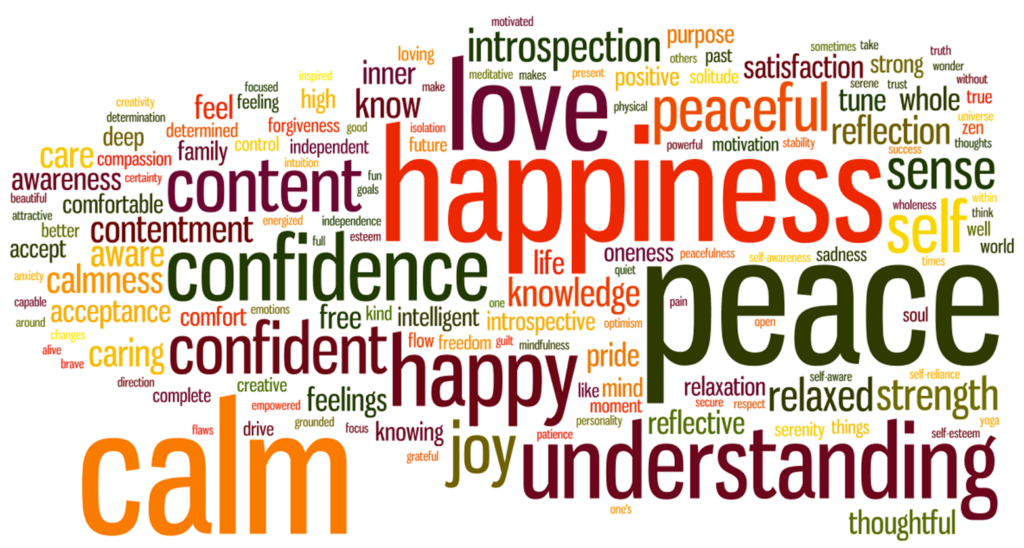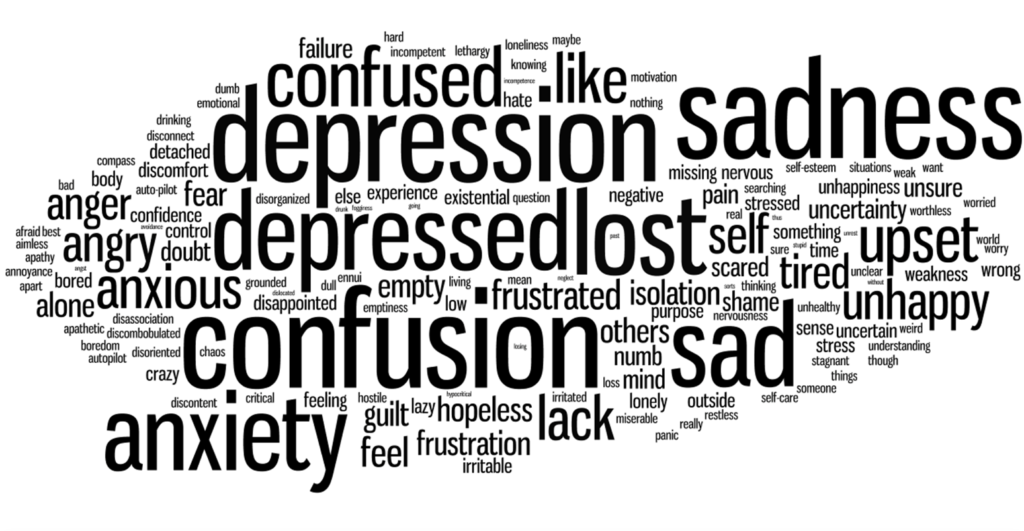Connection — in the sense that we use the word — is an intuitive idea that’s surprisingly tricky to define. It’s not the same as happiness, it’s something. . . broader. Bigger. Deeper. We’ve found the easiest way to explain the idea is to describe the sensations and emotions we have when we’re feeling connected.
One of the first studies Connection Lab conducted focused entirely on this question: what does self-connection feel like to you? We asked a number of people who experience high levels of self-connection to describe their experiences, and we plotted their responses as a word cloud to illustrate the most recurring themes (the bigger the word, the more often it was mentioned by the research subjects).

The results were fascinating. The biggest, most universally used word to describe self-connection was not in fact happiness (though clearly, that did come up frequently). The most commonly reported feelings for self-connection are actually PEACE and CALM, with happiness, love, understanding and confidence close behind. Think about that for a second. Connection is not just another word for happiness — it’s a constellation of contented, enlightened, peaceful, loving feelings. No one word can sum it up, but people instinctively recognize and revel in it.
As part of our study, we also asked the participants what it’s like to feel disconnected from self. Do these responses sound familiar to you?

What’s most striking about the words that dominated our results is how aptly they summarize modern-day angst. CONFUSION, DEPRESSION, ANXIETY, SADNESS, a sense of being LOST. . . all of these common complaints are emotional responses to feeling disconnected from self. Let’s consider how we are addressing these mental health challenges — do any of our current methods help people reconnect, or are we just treating the symptoms instead of the root problem?
We are a non-profit that wants to improve as many people’s lives as possible, so that the world can move forward on a macro level. What would happen if we started teaching self-connection first, before handing out pharmaceuticals? Would mental health outcomes be better? Would as many people need to take pills?
We certainly think it’s worth exploring — and we hope you’ll join us in the journey. Would you be interested in participating in our next Connection Lab study? Please email us!

Leave a Reply